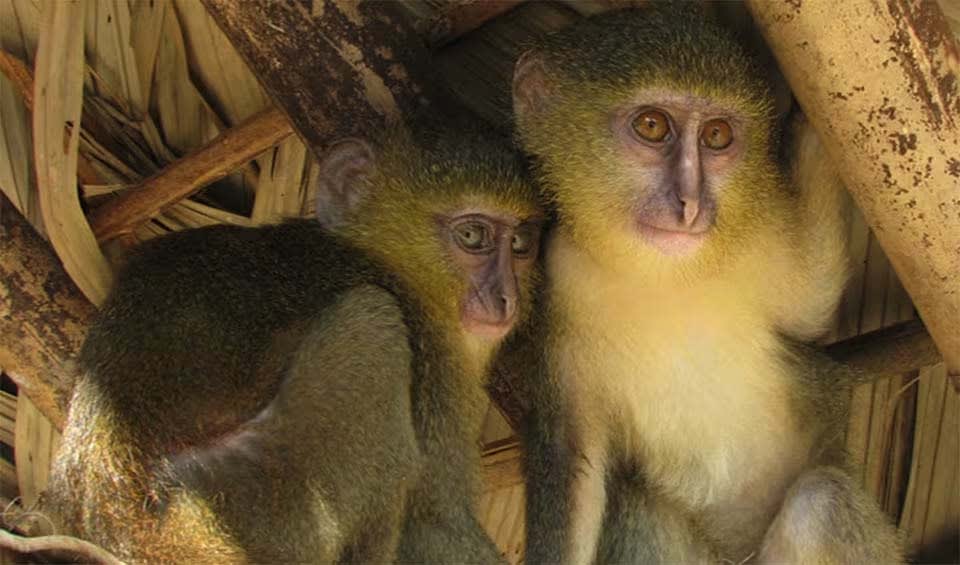A rare and intriguing monkey species found in the remote forests of the Democratic Republic of the Congo in Central Africa. It was only recently discovered by scientists in 2007, making it one of the few new primate species identified in the 21st century. The Lesula is a medium-sized monkey with a very distinctive appearance. It has a golden-brown coat, but what really stands out is its face, which is almost human-like, with large, round eyes that give it an expressive and somewhat soulful look. Its face is hairless and has a pinkish or bluish tone, which contrasts sharply with its darker, furry body.
One of the most notable features of the Lesula is its striking, bright blue patch of skin on its buttocks and upper thighs, a characteristic that is unique among monkeys. This blue patch is believed to play a role in communication and mate attraction, making it an important feature for the species.
The Lesula lives in dense, swampy forests and is highly adapted to this environment. It is mostly herbivorous, feeding on leaves, fruits, seeds, and flowers. The diet of the Lesula plays a crucial role in the health of the forest, as these monkeys help disperse seeds, promoting the growth of plants and trees. They spend a lot of time in the trees, using their long limbs and tail to move gracefully from branch to branch. However, it also comes down to the ground to forage for food.
Lesulas are generally shy and elusive, which is one reason they remained undiscovered for so long. They live in small social groups, usually consisting of a few individuals, such as a male, several females, and their offspring. These groups are very close-knit, and the monkeys communicate with each other using a variety of vocalizations, facial expressions, and body movements. Their social structure is important for raising young monkeys, who learn vital survival skills from the adults.
Distribution
 DR Congo (Kinshasa)
DR Congo (Kinshasa)Anything we've missed?
Help us improve this page by suggesting edits. Glory never dies!
Suggest an editGet to know me
Terrestrial / Aquatic
Altricial / Precocial
Polygamous / Monogamous
Dimorphic (size) / Monomorphic
Active: Diurnal / Nocturnal
Social behavior: Solitary / Pack / Troop
Diet: Carnivore / Herbivore / Omnivore / Piscivorous / Insectivore
Migratory: Yes / No
Domesticated: Yes / No
Dangerous: Yes / No




